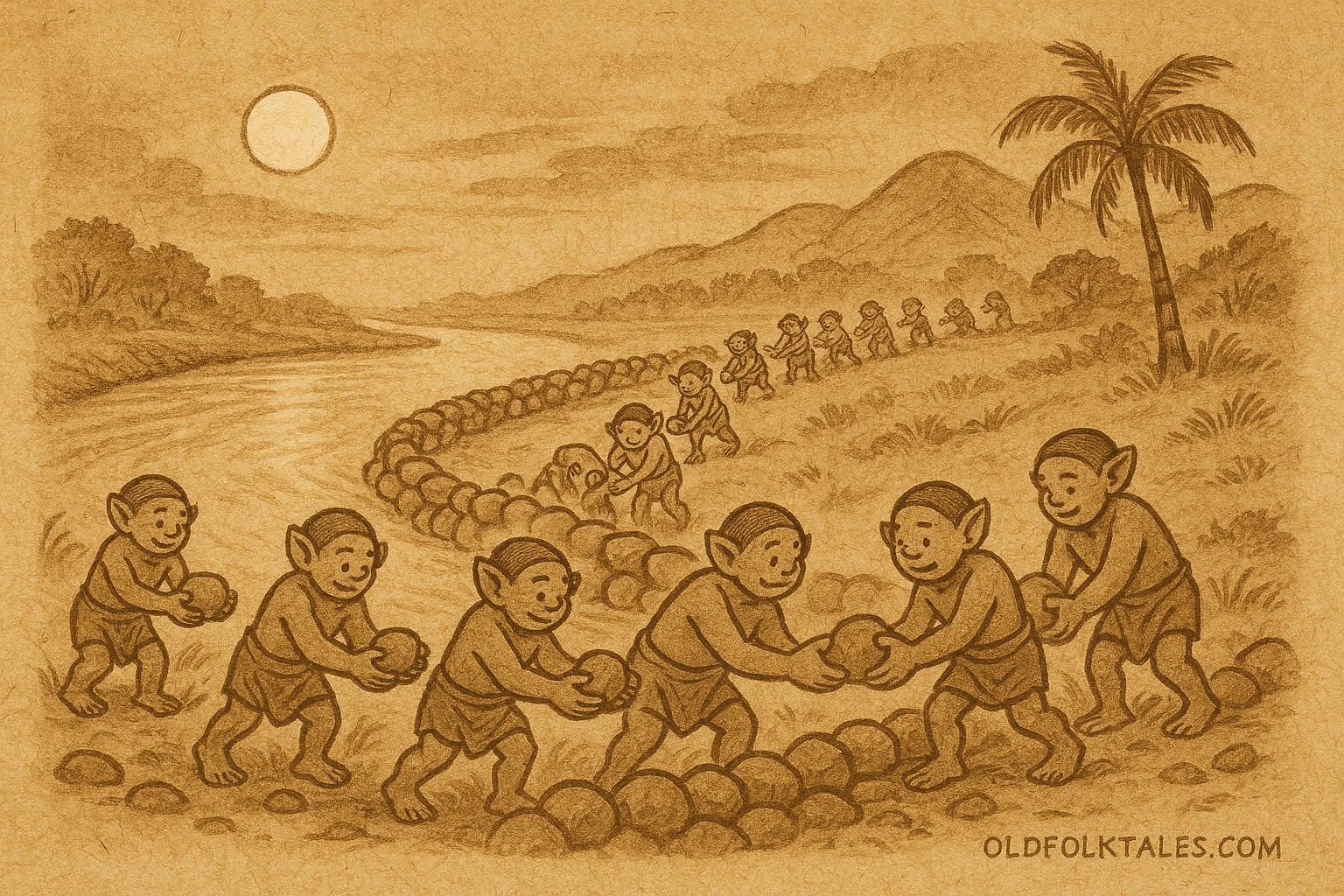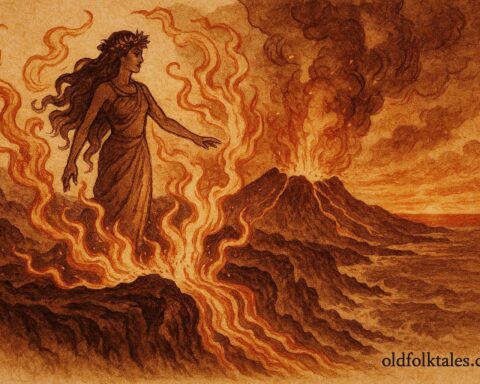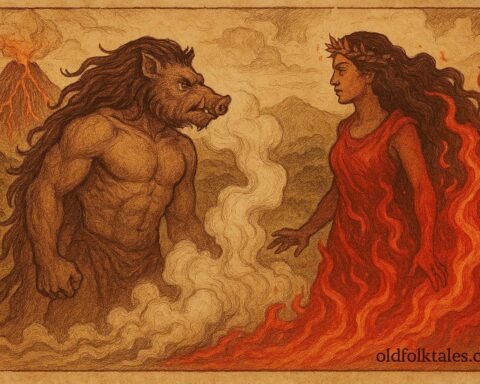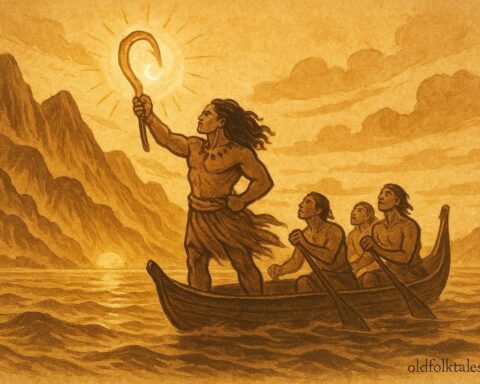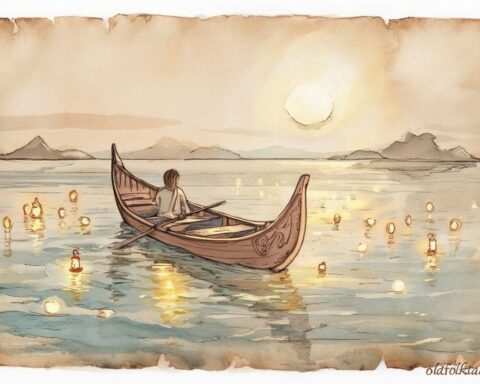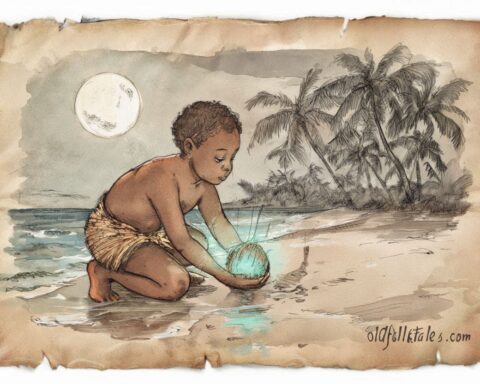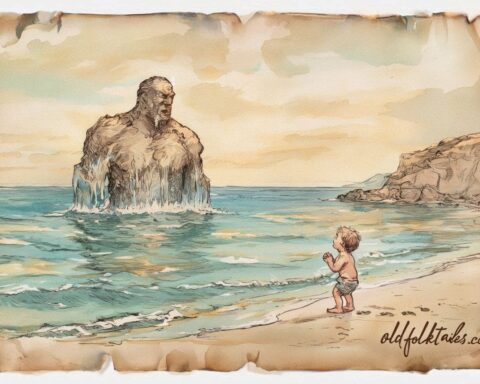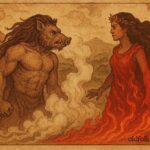Long before the great canoes of Polynesian voyagers touched the shores of Hawai‘i, before chiefs ruled and the sound of drums echoed in the valleys, there were the Menehune, the mysterious Little People who lived deep within the mountains.
They were small in stature but mighty in skill, gifted craftsmen and builders whose hands shaped the land in silence. Some say they were the first inhabitants of the islands, spirits of an ancient race who came long before humans. Others whisper that they were the offspring of the gods, placed in the heart of the valleys to create wonders unseen by daylight. Whatever their origin, the Menehune belonged to the night, and to secrecy.
Builders of the Night
When the moon rose over the mountains, painting the cliffs silver, the Menehune would emerge from their hidden homes, small caves and forest hollows known only to them. Their laughter was like the rustling of leaves, their footsteps soft as mist on the grass. Carrying tools made of stone and bone, they gathered beside rivers, lagoons, and mountain ridges to begin their work.
The Menehune built with astonishing speed and harmony. They never worked alone; hundreds of them labored together, moving stones larger than men could lift. They chanted rhythmic songs to time their efforts, and their voices echoed like waves along the valleys.
By dawn, they would vanish, leaving behind works so perfect and enduring that even the gods might pause to admire them, temples of smooth lava rock, aqueducts that carried water from distant springs, and vast fishponds that could feed an entire village.
The Great Fishpond of Alekoko
One of the most wondrous creations of the Menehune stood on the island of Kaua‘I, the fishpond of Alekoko, near the town of Līhu‘e. Long ago, two royal siblings, a chief and a princess, dreamed of building a pond large enough to trap and raise fish for their people. But no mortal labor could achieve such a task, for the stones were heavy and the distance great.
Then came a whisper in the night wind: “Call upon the Menehune.”
The siblings did so, leaving offerings of taro, fish, and sweet poi by the stream. When the moon rose, they sang softly, asking for help. Deep in the mountains, the Menehune heard their call and agreed, but with one condition.
“Not one eye must see us at work,” their leader declared. “If a mortal spies upon us before the task is done, we shall vanish forever.”
The royal siblings swore to keep watch so that no one would break the pact.
The Night of Construction
That night, the Menehune came by the hundreds. They formed a living chain stretching from the quarry in the mountains to the river’s edge, passing smooth stones from hand to hand. The air filled with the sound of chanting, the rhythm of many hearts beating as one.
The pond began to rise before the eyes of the moon. The Menehune worked tirelessly, stacking each stone with such precision that no mortar was needed. The wall grew higher and higher, curving gracefully along the water’s edge.
In the chief’s house, the princess lay awake, wondering if the Menehune would finish before dawn. Curiosity tugged at her heart like the tide at the shore. At last, unable to resist, she crept from her bed and tiptoed to the riverbank.
The Breaking of the Pact
There, in the moonlight, she saw them, the Little People of the Valleys, their eyes shining like stars, their bodies moving swiftly and silently. For a moment, she forgot to breathe. It was as though she was seeing a dream come to life. But as soon as her shadow touched the edge of the fishpond, the Menehune stopped.
Their leader turned, his face solemn. “You have broken the promise,” he said. “No mortal must behold us at our work. Now our time among men is ended.”
With a great sigh, the Menehune vanished, hundreds of them melting into the mist, their chants fading like the last note of a song. The princess wept, for the pond was nearly complete, but not finished. Only a small section of wall remained open, a gap where the water flowed freely.
To this day, the pond remains with that same gap, a reminder of the Menehune’s final work, and of the mortal curiosity that ended their aid forever.
The Vanishing of the Menehune
After that night, no one ever saw the Menehune again. Their laughter ceased in the valleys, and their tools were found lying abandoned near old quarries. Some say they returned to the mountains, where they still live unseen in deep ravines and hidden caves, watching over their ancient creations. Others say they turned to stone, becoming part of the very earth, they had shaped.
Yet, the people of Hawai‘i never forgot them. When villagers discovered a perfect stone wall or an old fishpond whose builders were unknown, they would bow their heads and whisper, “The Menehune built this.” Their name became a sign of mystery and mastery, a tribute to craftsmanship, teamwork, and the quiet power of the unseen.
Moral Lesson
The legend of the Menehune teaches that true greatness often works in silence. Respect for what we do not understand, the hidden, the sacred, the mysterious, is a mark of wisdom. The Menehune remind humanity that the world is filled with unseen hands shaping it in ways beyond our knowing. To honor that mystery is to live in harmony with the past and the divine.
Knowledge Check (Q&A)
- Who were the Menehune?
The Menehune were small, nocturnal builders of Hawaiian legend who crafted great works in a single night. - What was the condition the Menehune set before helping the royal siblings?
No mortal was to see them while they worked, or they would disappear forever. - What famous structure did the Menehune build on Kaua‘i?
The Menehune built the great fishpond of Alekoko, also known as the Menehune Fishpond. - Why did the Menehune vanish?
A princess broke the promise and spied on them, causing the Menehune to retreat into the mountains. - What do the Menehune symbolize in Hawaiian culture?
They represent craftsmanship, respect for mystery, and reverence for the unseen forces that shape the world. - What moral lesson does the story teach?
That curiosity must be tempered by respect, and that some wonders exist only for those who honor their secrecy.
Source: Adapted from Hawaiian Legends of Ghosts and Ghost-Gods by W. D. Westervelt (1916).
Cultural Origin: Hawaiian (Polynesian)
